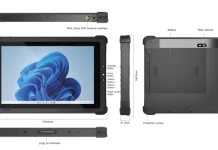The integration of Artificial Intelligence (AI) and automation technologies has heralded a transformative era in the job market. From manufacturing to service industries, these innovations have Bclub reshaped how businesses operate and how individuals navigate their careers. The relentless pace of technological advancement has sparked both excitement and concern regarding the future of work.
The Impact on Traditional Roles
One of the most noticeable effects of AI and automation has been the redefinition of traditional job roles. Repetitive and routine tasks are increasingly being automated, leading to a shift in the skill sets required by various professions. For instance, in manufacturing, robotics has streamlined assembly lines, reducing the need for manual labor. Similarly, in customer service, chatbots and automated systems have taken over basic query handling, altering the responsibilities of human agents.
This evolution demands that employees upskill or reskill to remain relevant in the job market. Soft skills like critical thinking, creativity, and adaptability are becoming indispensable alongside technical proficiency. Moreover, the demand for roles that involve overseeing and maintaining automated systems has surged, creating opportunities in AI development, data analysis, and system optimization.
The Evolution of Employment Dynamics
The integration of AI and automation has not only impacted individual job roles but has also altered the dynamics of employment. The gig economy, propelled by platforms that leverage AI algorithms to match tasks with freelancers, has expanded significantly. This model offers flexibility for workers but also raises concerns about job security and benefits traditionally associated with full-time employment.
Challenges and Opportunities
While AI and automation have streamlined processes and increased efficiency in various industries, concerns about job displacement persist. The fear of machines replacing humans in the workforce is a legitimate concern. However, history has shown that technological advancements also create new opportunities.
By automating repetitive tasks, individuals can focus on more complex and creative aspects of their work. For instance, in healthcare, AI assists in diagnostics, allowing medical professionals to spend more time on patient care. Moreover, the development and maintenance of AI technologies themselves have created a demand for specialized skills, generating new job opportunities.
Adapting to the Future
Navigating this evolving job market requires proactive measures from both individuals and organizations. Lifelong learning has become imperative. Continuous education and upskilling not only enhance employability but also empower individuals to embrace the changing landscape of work. Companies must invest in training programs to equip their workforce with the skills needed to thrive in an AI-driven environment.
Embracing Collaboration
Furthermore, fostering collaboration between humans and machines is crucial. Rather than viewing AI as a replacement, its integration should be seen as a partnership to augment human capabilities. Combining the analytical power of AI with human intuition and creativity can lead to innovative solutions and enhanced productivity.
The ethical implications of AI and automation must also be carefully considered. Measures to ensure fairness, transparency, and accountability in AI algorithms are essential. This includes addressing biases in data, safeguarding privacy, and establishing regulations to govern the ethical use of these technologies.
In briansclub conclusion, the convergence of AI and automation is reshaping the job market, challenging traditional employment structures, and redefining the skills needed for success. While it presents concerns about job displacement, it also offers opportunities for growth and innovation. Embracing lifelong learning, fostering collaboration between humans and machines, and addressing ethical considerations are crucial steps in navigating this transformative era and ensuring a sustainable future of work.






















![InstaPro APK Download Latest Version 2023 [Anti Ban]](https://olo.my.id/wp-content/uploads/2023/10/instapro-100x70.jpg)